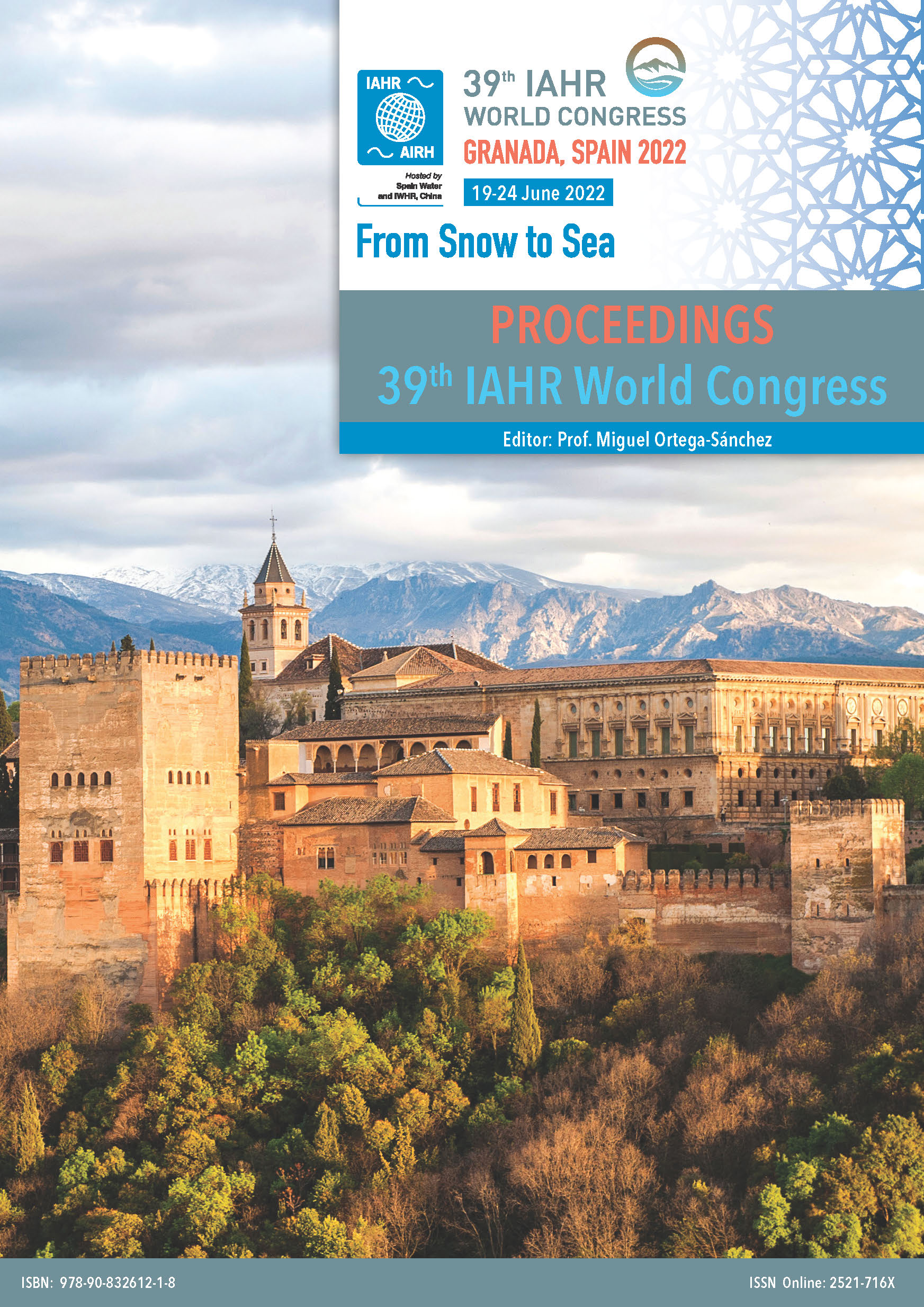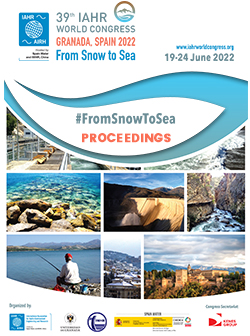

Publisher: IAHR
Editor: Miguel Ortega-Sánchez
ISSN: 2521-716X (Online)
ISSN: 2521-7119 (Print)
ISSN: 2521-7127 (USB)
ISBN/EAN: 978-90-832612-1-8
Theme 8. Extreme events: from droughts to floods
Theme 8.4. Urban flood management
08-04-001-209 | Calculate of design floods in the tonala river basin using a regional analysis of rainfall and a distributed rainfall- runoff model |
08-04-002-282 | Influence of suds allocated area on runoff reduction in developing urban catchments: a case study in san sebastian (Spain). |
08-04-003-150 | Management of urban floods based on tolerable consequences in an uncertain future |
08-04-004-322 | Runoff coefficients associated with different return periods calculated by means of statistical analysis |
08-04-005-560 | Influence of building positioning on flow processes in urban flooding: computational modelling and laboratory experiments |
08-04-006-577 | Floods in housing estate: some experimental data |
08-04-007-708 | New dynamic data-driven model for predicting the apparent shear force and discharge of compound channels |
08-04-008-801 | Innovative tools for urban flood management – a brief overview of 2d-hydrodynamic modelling and how to possibly overcome its limitations in extreme flood management in urban areas by artificial intelligence |
08-04-009-864 | Assessing the impact of climate change on fluvial flood losses in urban areas. the case study of pamplona (Spain) |
08-04-010-882 | Parameterization of flow resistance for the hydrodynamic numerical simulation of sheetflow |
08-04-011-885 | Protecting heritage cities from pluvial flooding: the santa croce district in florence |
08-04-012-1155 | Deufi project for accurate urban flood risk assessment |
08-04-013-1310 | Modelling strategy for multi purposes management in a mediterranean ungauged catchment – application to the paillons catchment, france |
08-04-014-1323 | Impacts of climate changes on coastal urban flooding |
08-04-015-1332 | Prioritization of infrastructures' criticality: a multi-criteria decision analysis vs. using vulnerability curves |
08-04-016-1341 | Prediction of urban flooding risks using high-resolution modeling and hybrid rainfall data |
08-04-017-1357 | Characteristics of air-water bubbly flow in the urban deep-tunnel drainage system |
08-04-018-1427 | Impacts of topographic resolution on deterministic hydrological and hydraulic models–application to cagne catchment, france |
08-04-019-1534 | Spatial and temporal variability of weather data for modeling urban hydrology. |
08-04-020-1560 | Evaluating empirical and mechanics-based pedestrian stability models |
08-04-021-1655 | Analytical probabilistic model incorporating parameter adjustment for stormwater runoff in south korea |
08-04-022-1660 | Numerical simulation of the coastal flooding in urban centres with underground spaces |
08-04-023-1669 | Use of social media crowdsourcing data for pluvial flood modelling validation to assess future climate-related impacts. the crisi adapt project |
08-04-024-1674 | Exacerbation of hydrologic events due to anthropogenic causes in arid zones |
08-04-025-1780 | Early warning and emergency management support system at a municipal level for extreme climate events management |
08-04-026-1794 | Stormwater runoff assessment under climate change scenarios using remote sensing products. a case study in piura, peru |
